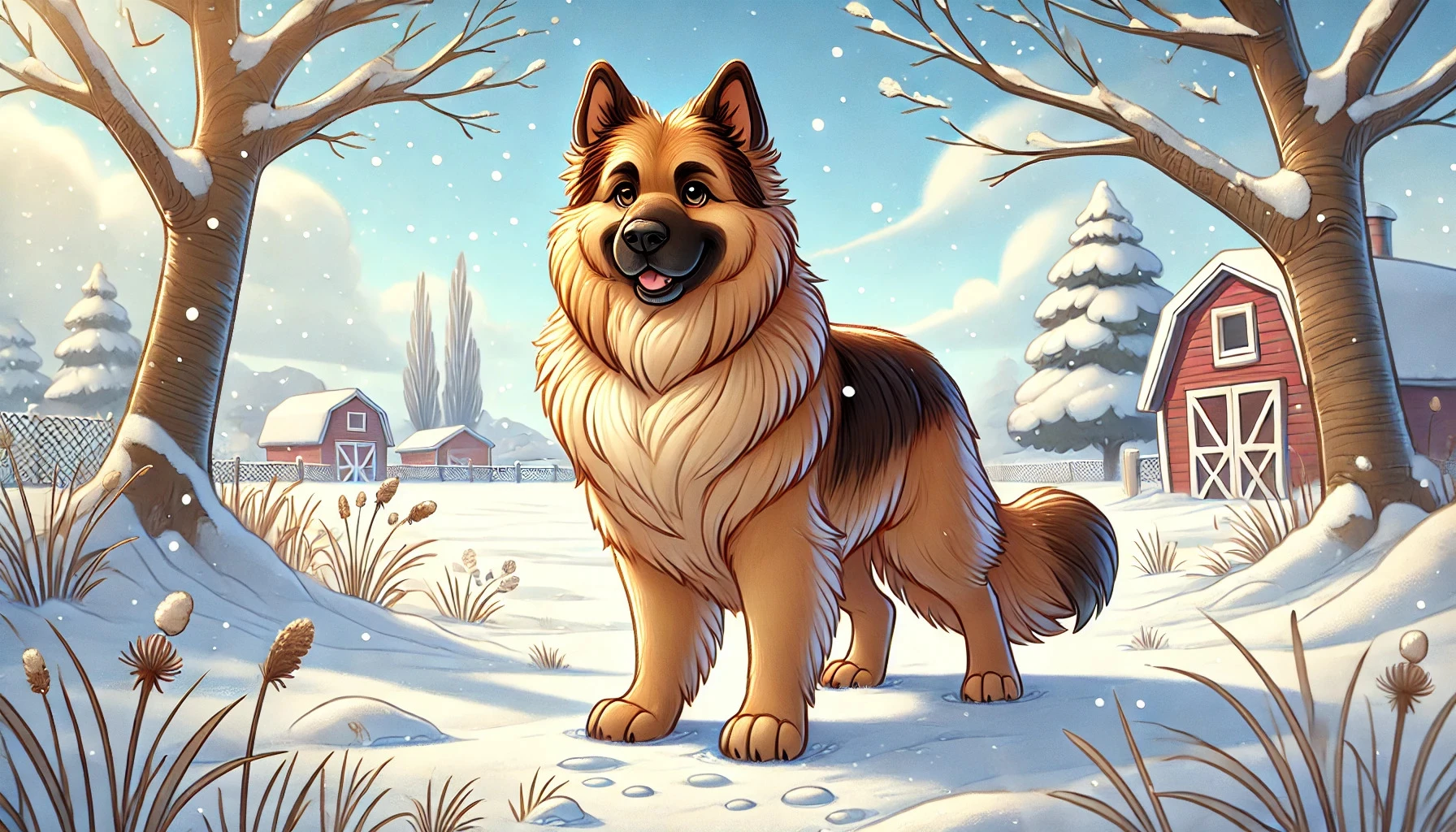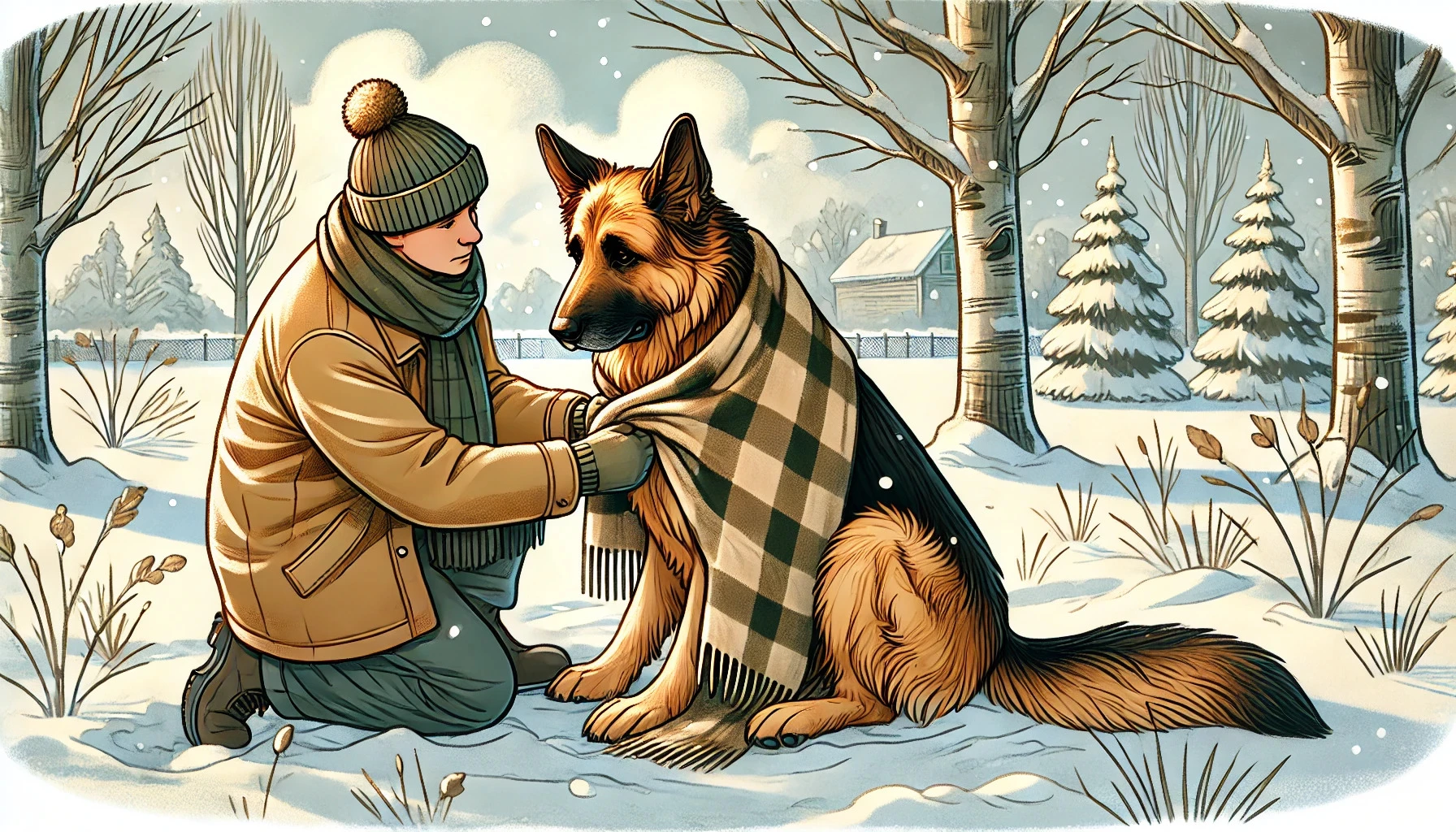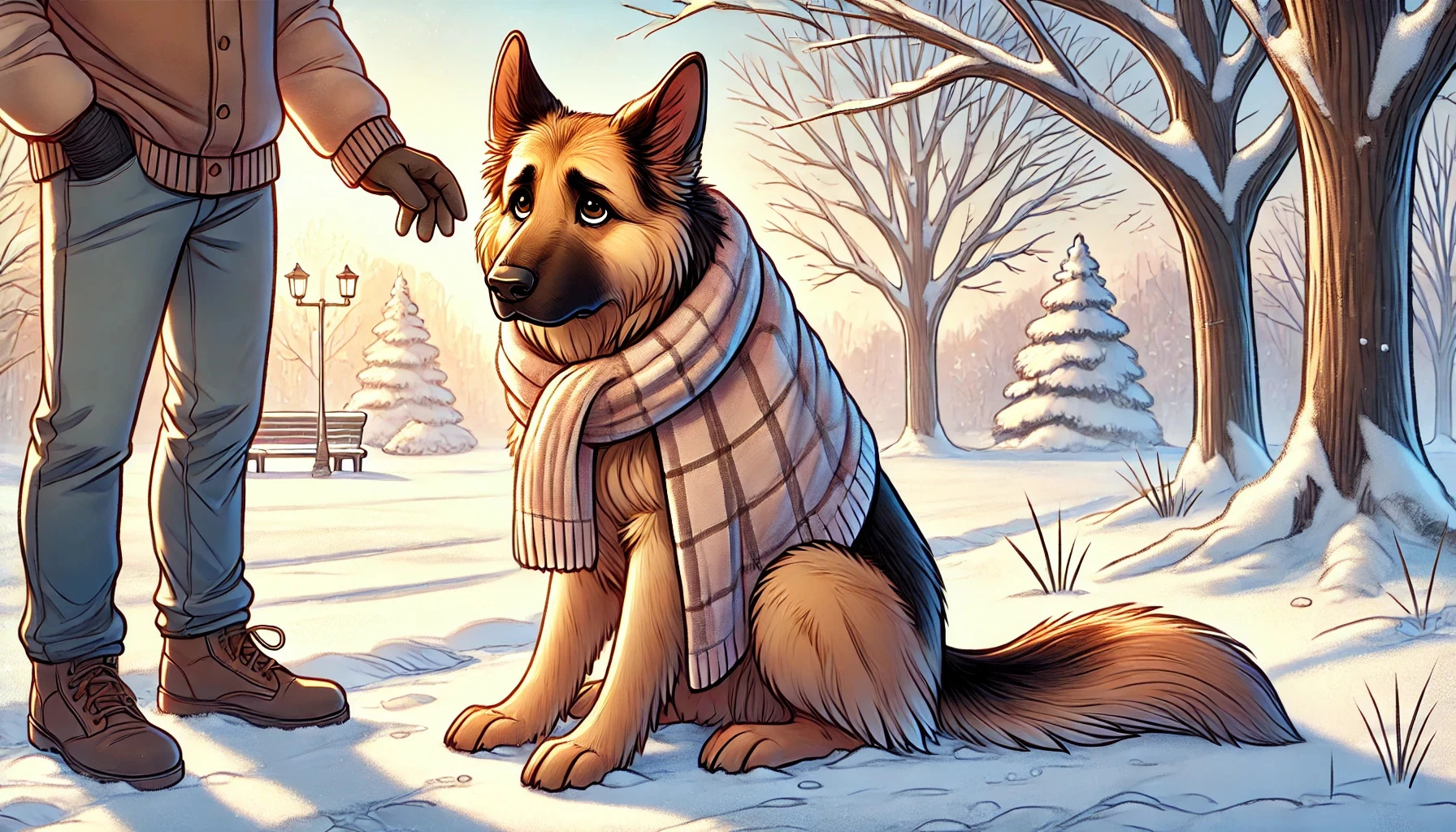On this page
Do German Shepherds Get Cold?
Yes, German Shepherds can get cold, especially in extremely low temperatures below 20°F (-6°C). Despite their thick double coat, which provides insulation, prolonged exposure to freezing weather can lead to discomfort or even hypothermia. Puppies, senior dogs, or those with health issues are particularly vulnerable, with their tolerance often reduced by 20-30% compared to healthy adult dogs. Factors such as age, health, and outdoor exposure significantly affect how well they handle the cold.
For example, a healthy adult German Shepherd can typically stay comfortable for up to 30–45 minutes in freezing conditions with activity, but this time reduces dramatically in harsher weather. To keep your German Shepherd safe and comfortable, understanding their cold tolerance and taking preventative measures, such as limiting outdoor time and providing warm shelter, is essential.
How Does a German Shepherd’s Coat Protect Them in Cold Weather?
A German Shepherd’s coat is naturally designed to offer protection in cold climates, but it has its limits. Their double coat consists of a dense undercoat for insulation and a weather-resistant outer coat that repels moisture.
Why Their Coat Matters:
Thick Undercoat: Keeps them warm by trapping heat close to their body.
Water-Resistant Outer Layer: Shields them from snow and light rain.
Seasonal Shedding: German Shepherds shed their undercoat twice a year, leaving them more vulnerable during certain seasons.
Compared to breeds like Siberian Huskies, German Shepherds are less adapted to extreme cold, making them prone to discomfort if exposed for long periods.
Recommendation from Dr. Laura Jenkins, DVM: "While their coat provides excellent protection, German Shepherds should not be left outside in subzero temperatures for extended periods."
Learn how to care for your German Shepherd’s coat during winter with Dosty App.

What Temperature Is Too Cold for a German Shepherd?
German Shepherds tolerate cold temperatures better than many breeds, but anything below 20°F (-6°C) can be dangerous. Prolonged exposure to freezing weather can lead to hypothermia or frostbite, particularly in puppies, senior dogs, or those with underlying health issues.
Factors That Affect Cold Tolerance:
Age: Puppies and older dogs have lower resistance to cold.
Health Conditions: Illnesses like arthritis worsen in low temperatures.
Acclimatization: Dogs living in colder regions may adapt better than those in mild climates.
While some German Shepherds thrive in temperatures as low as 30°F (-1°C), extended exposure below this range should be avoided.
Recommendation from Dr. Mark Edwards, Veterinary Specialist: "Monitor your German Shepherd’s behavior in the cold. Signs of discomfort include shivering, lethargy, or seeking warmth."
For more tips visit our page Dosty.co.
What Are the Signs Your German Shepherd Is Too Cold?
Recognizing the signs of cold discomfort in your German Shepherd is essential to prevent serious health issues like hypothermia or frostbite.
Common Signs of Cold Discomfort:
Shivering: A clear indicator that your dog is trying to generate warmth.
Lifting Paws: Indicates discomfort from cold ground or snow.
Whining or Seeking Shelter: A sign they want to escape the cold.
Cold Ears or Tail: Exposed areas cool down faster, signaling reduced blood flow.
If your dog exhibits any of these signs, bring them indoors immediately and provide warmth.
Recommendation from Dr Brooke Schampers, DVM: "If your German Shepherd shows signs of discomfort, limit their outdoor activity and ensure they have access to a warm, dry space."
Get more care tips for German Shepherd Now!

How Can You Keep a German Shepherd Warm During Winter?
Keeping a German Shepherd warm during winter involves proactive measures, including proper gear, diet adjustments, and indoor care. Their coat is helpful, but additional precautions ensure they stay comfortable.
Winter Care Tips:
Provide a Dog Coat: Lightweight coats with insulation offer added warmth without restricting movement.
Protect Their Paws: Use dog booties or paw balm to shield against frostbite and ice-melting chemicals.
Limit Outdoor Time: Keep walks shorter on extremely cold days.
Ensure Proper Shelter: Provide a warm, insulated area if your dog spends time outside.
Research shows that using dog coats in winter can reduce heat loss by up to 35%, making them a valuable tool for breeds like German Shepherds.
Recommendation from Dr. Anthony Clarke, DVM: "Invest in high-quality winter gear to protect your German Shepherd from the cold, especially during outdoor activities."
Do Diet Changes Help German Shepherds Handle the Cold?
Yes, adjusting your German Shepherd’s diet during winter can help them maintain their energy levels and stay warm. Cold weather increases their caloric needs as their bodies work harder to regulate temperature.
Recommended Winter Diet Adjustments:
Increase Caloric Intake: Add 10–20% more calories to meet their energy demands.
Incorporate Omega-3 Fatty Acids: Supports coat health and reduces inflammation.
High-Quality Protein: Maintains muscle mass and energy for physical activity.
Studies show that dogs fed a winter-adjusted diet are 30% more likely to stay active and avoid cold-related issues like lethargy.
Recommendation from Dr. Rachel Bennett, DVM: "A nutrient-rich diet with added fatty acids can enhance your dog’s ability to handle cold weather."

Are German Shepherds Better in Cold Weather Than Other Breeds?
Yes, German Shepherds are better equipped for cold weather compared to short-haired breeds like Boxers or Greyhounds. Their double coat provides insulation, but they are not as cold-resistant as Arctic breeds like Siberian Huskies.
How They Compare:
Double Coat Advantage: Offers better insulation than single-coated breeds.
Body Size: Their larger size retains heat more effectively.
Cold Tolerance Limitations: Prolonged exposure to subzero temperatures still poses risks.
Compared to Huskies, German Shepherds may require more protection, especially during harsh winters or extended outdoor activities.
Recommendation from Dr. Emily Harper, DVM "German Shepherds are resilient in cold weather, but owners must recognize their limitations and provide proper care."
Get expert advice on winter protection for German Shepherds on Dosty App.
Conclusion: Do German Shepherds Get Cold?
German Shepherds are well-suited for cooler climates thanks to their thick double coat, but extreme cold can still affect their health and comfort. Understanding their limits, recognizing signs of discomfort, and providing appropriate care—like winter gear, a balanced diet, and indoor warmth—ensures they stay safe and happy during winter months.

